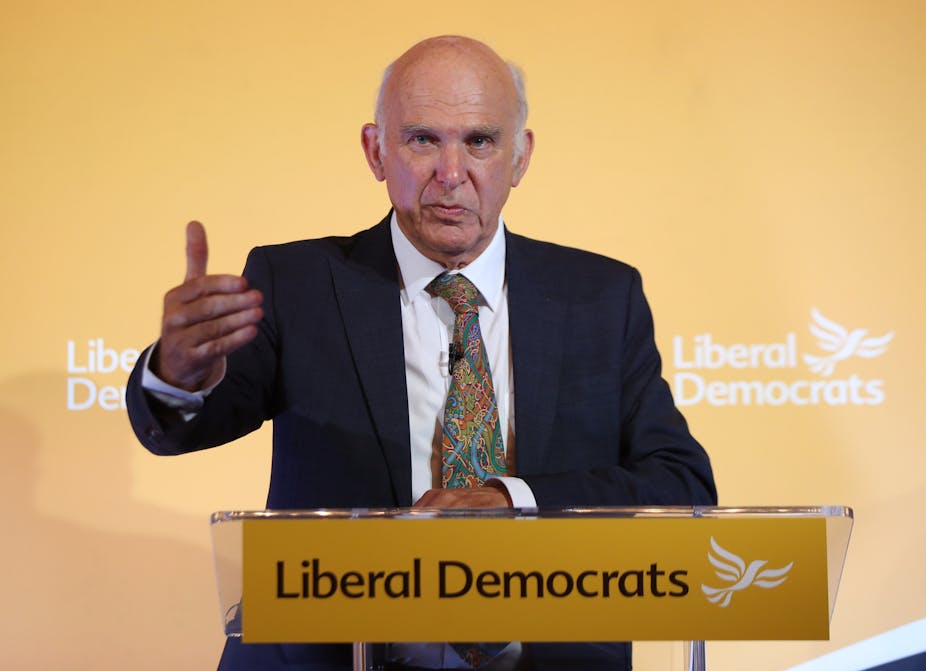The Liberal Democrats are consulting on how to realise their idea of creating a supporters network – a free-to-join group that would expand the party’s activism beyond paid-up members.
These proposals would see the Liberal Democrats potentially follow the Labour Party in opening up their membership structures to supporters, and would give registered supporters a vote on the party leadership. But while the party would be following an established trend that, in Labour, has been strongly associated with the rise of Momentum, data from our recently conducted ESRC party survey shows that the proposal may not be such a good idea.
Over the past year, as part of a project looking at public attitudes towards political parties, we have conducted a national survey and workshops focused on unpicking people’s desires. At first glance, our findings show that the Liberal Democrats may be onto something. When we asked about opportunities for participation, we found a lot of support for the idea of more opportunities to get involved in parties. Specifically, we used a trade-off question to assess people’s views, asking:
Some people say that there should be more opportunities for ordinary people to get involved in political parties. Others say that there are already enough opportunities to get involved. On the following scale – where one means there should be more opportunities for people to be involved and four means there are enough opportunities to be involved already – where would you place yourself?
We found that 45% of people wanted more opportunities, while 34% felt that there were already enough. For nearly half of respondents, therefore, more opportunities to get involved were desired.

From this perspective, the idea of new participatory opportunities is attractive. But does that necessarily mean a network like the one being proposed by the Liberal Democrats is the right way to go about it?
We presented survey respondents with a range of different activities people could get involved in within parties and asked them what people should have to do to get involved. They could answer that people should have to be a party member, a supporter, have to sign up for information, or be able to get involved without doing any of these things. We also gave people the option of saying that party leaders, not the public, should conduct these activities.

Looking at the results, you can see that people’s views about what should be required for getting involved vary. For making party policy, 28% of people felt that this should be done by members, whereas for campaigning on specific issues, or engaging in political discussion and debate, people thought you should be able to get involved without doing anything.
For the Liberal Democrats, these results are interesting because we asked about people registering as a supporter. It’s clear that there wasn’t much interest in this idea. The most people selecting this option did so for campaigning to win elections (17%), but for the other options – such as discussion and debate and policy making – there was less positivity. Importantly for the Liberal Democrats, only 15% of people said they’d be interested in becoming a supporter in order to take part in a leadership election. More people (28%) felt selecting a leader should be up to party members.
From these results it appears that there is limited appetite for supporter networks. This finding was supported by another question we asked about the kind of activities people themselves had been involved with, and would consider doing in the future. We didn’t find much appetite for donating money to a party, being a party member or campaigning through a political organisation. Indeed, most respondents had no intention of getting involved in any of the activities we presented. On average, 59% of respondents answered that they had not done, and had no interest in doing any of these activities – a figure that grows to 66% when “Other” is removed.

Of specific interest, looking at becoming a registered party supporter, 67% said they had no intention of doing this in the future – only slightly less than the 69% who said they wouldn’t consider becoming a member.
On this evidence, there is little sign that introducing a supporters network to build a political movement will boost engagement with the Liberal Democrats. Moreover, there is evidence that linking a supporters scheme to the electing of a leader may not be popular. This initiative may therefore not deliver the desired returns and could, as Labour have found out, have some unintended consequences.

